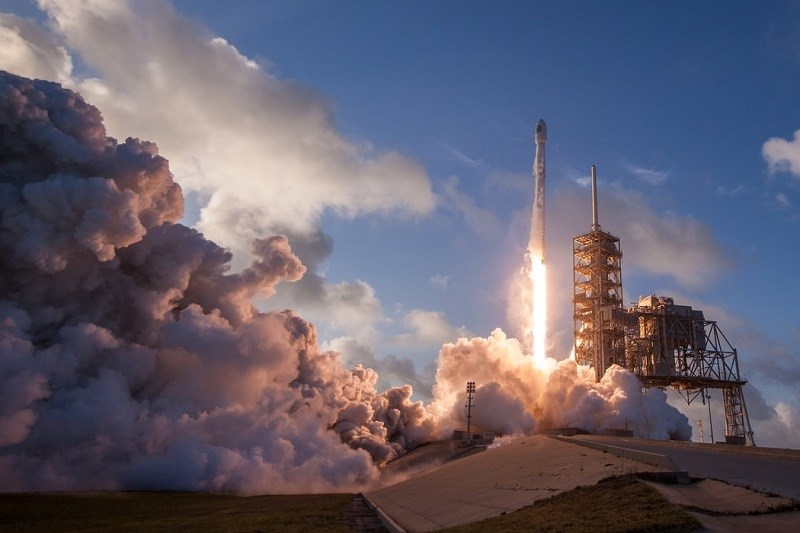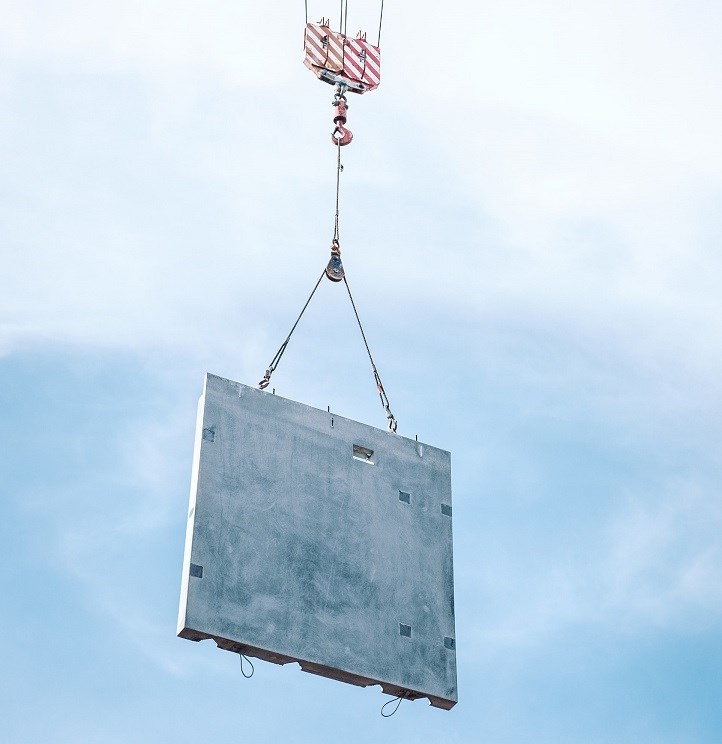
The more than 3000-point stock market crash in the last week of February, the biggest swoon in more than two years, is the sign that the current sell-off and the resultant volatility are taking hold. The meltdown didn’t just spook investors already on edge, it wiped out all the gains for the Dow and S&P 500 indices for 2020.
A plunge this fast and this far is a rude reminder of the vagaries of the stock market, but it’s also a good time to take a pause and look for new opportunities, new growth markets. For prudent investors, now may a good time to research and identify sectors that are witnessing increased activity, improved prospects, where companies are providing services that are part of a larger growing trend with staying power. One such sector is space. Space tourism, to be exact.
Widely regarded as a new frontier for exponential growth, commercial space tourism is projected to become a US$ 3 billion industry in the next 10 years, clocking double-digit annual growth, thanks to a hefty price tag for each flight. Based on a ticket cost of US$200,000, the space tourism market is predicted to be worth US$700 million annually by as early as next year.
Intrepid investors wishing to get in on the ground floor may want to look at the following leaders in the space (pardon the pun). These companies have highly sophisticated technology, a robust business model and exceptional leadership needed to fulfil one of the most ambitious dreams of mankind. If space adventure successfully takes off as predicted, the sky could indeed be the limit for these companies.
| Amazon Inc. | |
| Ticker: | AMZN |
| Current yield: | - |
| Forward P/E: | 67.11 |
| Price: | US $1958.36 |
| Fair value: | US $2400 |
| Value: | 22% Discount |
| Moat: | Wide |
| Moat trend: | Stable |
| Star rating: | *** |
| Data as of Feb 27, 2020 |
While the world’s biggest online retailer Amazon (AMZN) isn’t a pure-play space company, it generates funds that CEO Jeff Bezos uses to fuel his commercial space tourism project, Blue Origin. Blue Origin has developed a crewed capsule, New Shepard, capable of flying tourists into space on an 11-minute flight. Having successfully run multiple test flights, the passenger rocket is reported to be performing a commercial flight sometime this year. The Jeff Bezos-funded company even has plans to set up a base on the moon. For now, though, the company has partnered with aerospace behemoths Lockheed Martin and Northrop Grumman to build a lunar landing system for NASA’s upcoming manned lunar mission, Artemis program.
Given that much of Blue Origin business is funded by Bezos’ Amazon stake, the performance of the online retailer has a significant bearing on the growth of his space venture. Fortunately, Amazon is one of the most valuable U.S. companies, one of only four that have crossed the US$1 trillion market cap mark.
It’s safe to assume that Blue Origin inherits Amazon’s operational efficiency, innovation and customer service, and a constantly evolving business model. “Amazon is the most disruptive force facing the retail category over the past several decades,” says a Morningstar equity report, noting the company’s blowout fourth-quarter results included a 21% jump in revenue to US$87.4 and better-than-expected operating profit of US$3.9 billion.
These numbers prompted Morningstar sector strategist R.J. Hottovy to raise the stock’s fair value from US$2,300 to US$2,400, calling it “our top pick in online retail.”
| Tesla Inc. | |
| Ticker: | TSLA |
| Current yield: | - |
| Forward P/E: | 81.97 |
| Price: | US $718.72 |
| Fair value: | US $471 |
| Value: | 65% Premium |
| Moat: | None |
| Moat trend: | Positive |
| Star rating: | ** |
| Data as of Feb 27, 2020 |
There isn’t a name more easily recognizable in space exploration today than SpaceX, a private aerospace design and automobile manufacturing company headed by Tesla (TSLA) CEO Elon Musk. The billionaire entrepreneur has 52% stake in the rocket launch company, currently valued at an estimated US$36 billion.
Tesla-backed SpaceX already operates cargo spacecraft to deliver NASA supplies to the International Space Station and to carry out science investigations. The company is preparing for the first flight test with NASA astronauts to the ISS later this year. It is also pushing into commercial space tourism. SpaceX has reportedly signed a deal with Bigelow Aerospace to fly individuals to the ISS for about US$52 million apiece. More recently, the company tied up with the U.S.-based space tourism operator, Space Adventures, to send private citizens on a trip orbiting the earth.
In fact, SpaceX is going a step further and plans to land tourists on the moon aboard its Starship MK1, and has already signed up its first customer. As the growth in Tesla’s EV production and revenue growth takes hold, SpaceX could be expected to receive a greater share of CEO Musk’s focus and finances.
“Tesla sold about 368,000 vehicles globally in 2019, [and] even if demand exists for 1 million vehicles, this quantity is small relative to total global auto production, which should reach 100 million units in the next few years,” says Morningstar sector strategist, David Whiston, who considers Tesla the leader in the EV space, and recently raised the stock’s fair value from US$326 to US$471.
| Boeing Co. | |
| Ticker: | BA |
| Current yield: | 2.69% |
| Forward P/E: | 47.17 |
| Price: | US $299.07 |
| Fair value: | US $347 |
| Value: | 16% Discount |
| Moat: | Wide |
| Moat trend: | Stable |
| Star rating: | *** |
| Data as of Feb 27, 2020 |
The world’s largest aerospace and defense firm, Boeing (BA) makes commercial airplanes (60% of sales) and defense equipment (25% of sales), while after market servicing of aircraft produces 15% of sales.
NASA’s prime contractor for the ISS, Boeing helped build the station and is fast emerging as a dominant player in space tourism. The aerospace giant’s commercial spacecraft CST-100 Starliner is projected to open a market for tourism in low earth orbit. Boeing and SpaceX have been hired by NASA to develop commercial crew transportation to the ISS as part of the Commercial Crew Program. The contract allows Boeing the capacity to market seats not needed by NASA to wealthy space tourists.
Boeing primarily generates revenue from manufacturing commercial aircraft where structural barriers to entry and substantial switching costs create intangible assets that “solidify [Boeing’s] place at the top of the commercial aerospace value chain,” says a Morningstar equity report, noting Boeing’s many advantages in this segment include an extensive backlog that reduces revenue cyclicality and a large installed product base that generates sustainable aftermarket sales.
Boeing’s defense segment comprises the production of defense-specific products and aftermarket servicing, which together account for about 35% of operating income. “Just under half of Boeing’s US$16 billion dollars in servicing revenue comes from governments, and much of this is earned from the military,” says Morningstar equity analyst Burkett Huey, who recently increased the stock’s fair value from US$335 to US$347.
There’s no reason for the government to replace Boeing, a move which could necessitate an expensive fleet update, he adds.
Capture opportunities in technology
Learn about the Morningstar Exponential Technologies Index here








.jpg)














